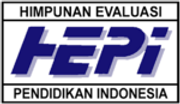The Effect of Punishment on Elementary Students in the Islamic School
Abstract
Keywords
Full Text:
PDFReferences
Gartrel. (1997). Beyond Discipline to Guidance: Young Children, 52 (6) 34-42.
Thapa Amrit, Jonathan Cohen, Shawn Guffey. (2013). A review of School Climate Research: Review of Educational Research, 83 (3), 357-385.
Schneider Barbara and James S. Coleman. (2018). Parents, Their Children, and School. New York: Taylor & Francis.
Kilimici, S (2009). Teachers’perceptions on corporal punishment as a Method of discipline in elementary School: The Journal of International Social Research, 2(8), 242-251
Budiman, A. (2017). Behaviorism in Foreign Language Teaching Methodology, English Franca, 1(2), 101–114.
Cheung, K. C., Taylor, R., Cheung, K. C., & Taylor, R. (2006). Towards a humanistic constructivist model of science learning: changing perspectives and research implications. Journal of Curriculum Studies, 23, 37–41.
Heitmann, P., Hecht, M., Scherer, R., & Schwanewedel, J. (2017). Learning Science Is About Facts and Language Learning Is About Being Discursive— An Empirical Investigation of Students’ Disciplinary Beliefs in the Context of Argumentation: Frontiers in Psychology, 8.
Indrayati. (2017). The Implementation Of PAIKEM Based on Project-Based Learning and Cooperative Learning: IOSR Journal of Humanities and Social Science, 22(7), 37–43.
Kayiwa, J., Clarke, K., Knight, L., Allen, E., Walakira, E., Namy, S., Devries, K. (2017). Effect of the good school toolkit on school staff mental health, sense of job satisfaction and perceptions of school climate: Secondary analysis of a cluster randomised trial: Preventive Medicine, 101, 84–90.
Kunlasomboon, N., Wongwanich, S., & Suwanmonkha, S. (2015). Research and Development of Classroom Action Research Process to Enhance School Learning: In Procedia-Social and Behavioral Sciences, 171, 1315–1324.
Staddon, J. (2017). Theoretical Behaviorism: In In Behavior and Philosophy, 217–241.
DOI: https://doi.org/10.18326/mdr.v11i1.53-67
Refbacks
- There are currently no refbacks.
Copyright (c) 2019 Widyastuti Widyastuti

This work is licensed under a Creative Commons Attribution 4.0 International License.

This work is licensed under a Creative Commons Attribution 4.0 International License.
Program Studi Pendidikan Guru Madrasah Ibtidaiyah (PGMI)
Universitas Islam Negeri (UIN) Salatiga, Indonesia
Jl. Lingkar Salatiga Km. 2 Pulutan, Sidorejo, Kota Salatiga, Jawa Tengah 50716,
Telp. (0298) 323706 – Fax. (0298) 323433
Technical Support: jurnalmudarrisa@iainsalatiga.ac.id
P-ISSN: 2085-2061
E-ISSN: 2541-3457



